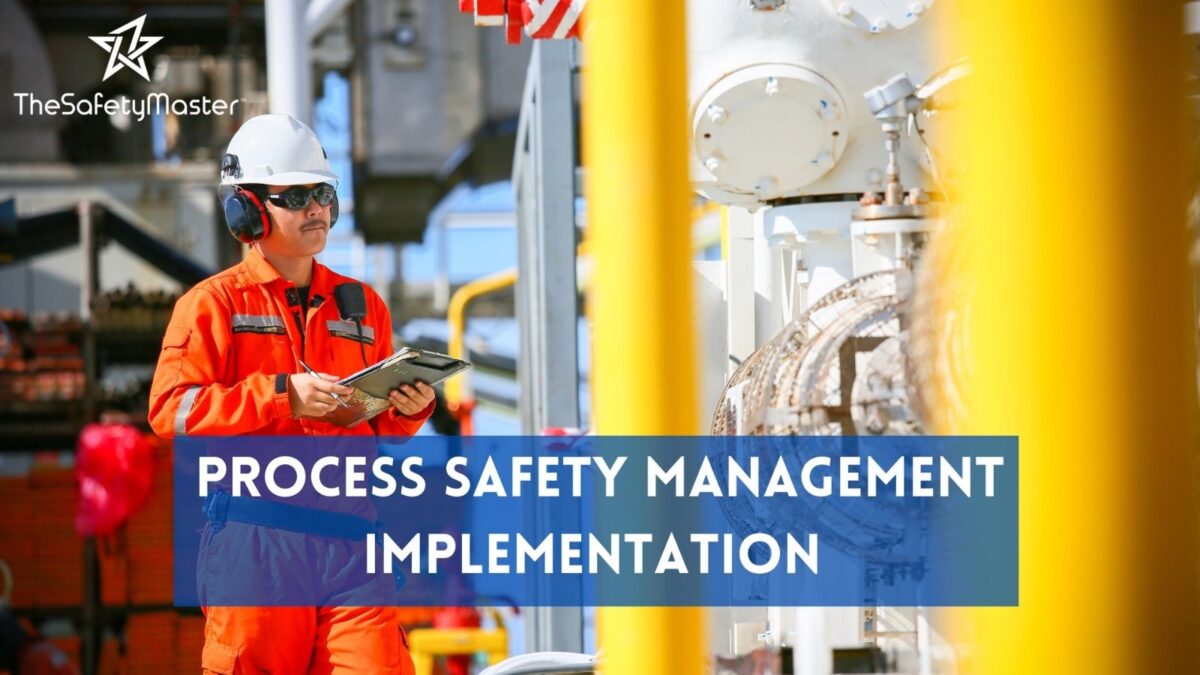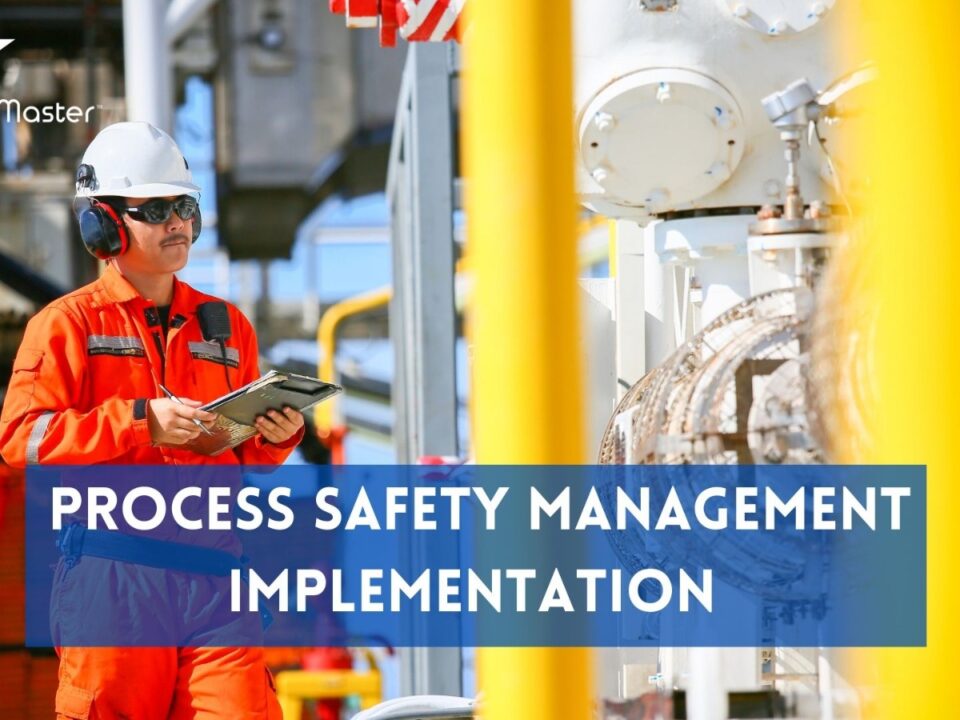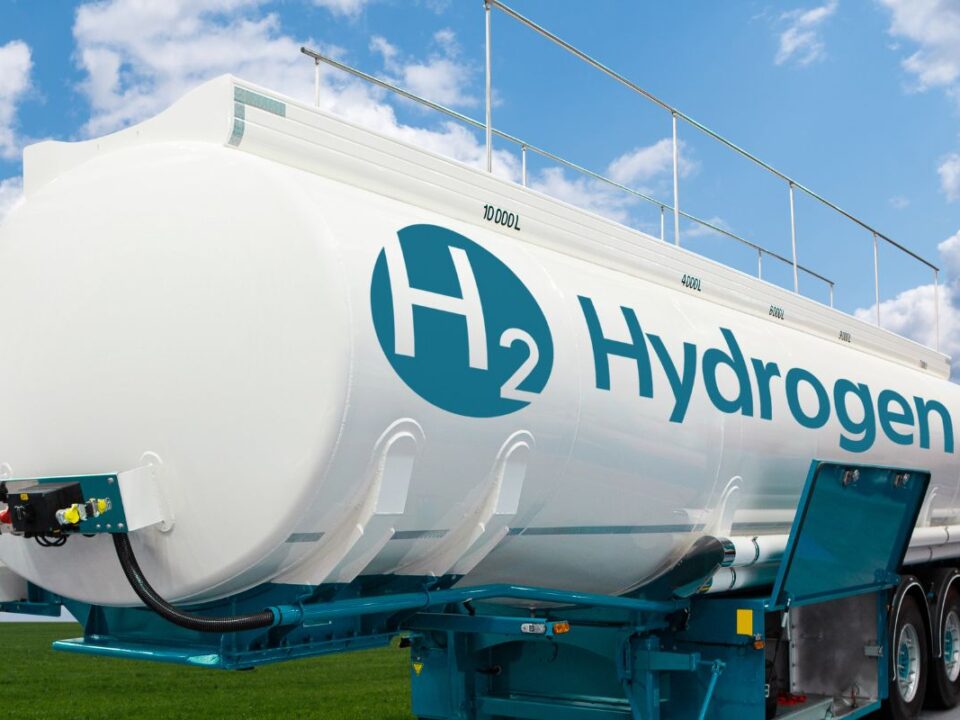Enhancing Steel Safety: Process Management for Optimal Operations

Illuminating Safe Practices: Understanding the Role of Audits in Electrical Safety for Indian Businesses
December 28, 2023
Bridging the Gap: Implementing Behaviour-Based Safety for a Safer Manufacturing Workplace
December 30, 2023In this article, we delve into the critical issue faced by the steel manufacturing industry – ensuring maximum safety while streamlining operations. Process safety management implementation plays a pivotal role in addressing this concern, offering numerous benefits that cannot be overlooked. From preventing accidents to minimizing downtime, it paves the way for a safer and more efficient work environment. Join us as we explore the advantages of adopting process safety management implementation in the steel manufacturing industry and discover how it can revolutionize your operations. Don’t miss out on the promise of enhanced safety and optimized efficiency – read on to unlock the key to success in your steel manufacturing endeavors.
Introduction
Steel manufacturing is a vital industry that provides the backbone for numerous sectors, including construction, automotive, and infrastructure. However, amidst the relentless pursuit of efficiency and productivity, ensuring the safety of workers and minimizing environmental risks often takes a backseat. This negligence can have catastrophic consequences. Fortunately, there is a solution: Process Safety Management (PSM). In this highly informative article, we delve into the intricacies of implementing PSM in the steel manufacturing industry. We aim to shed light on the benefits it offers in terms of streamlining operations while maximizing safety. By implementing effective process safety management systems, steel manufacturers can protect their workforce, mitigate environmental hazards, enhance operational efficiency, and ensure compliance with regulatory standards
Importance of Process Safety Management in the Steel Manufacturing Industry
In the realm of steel manufacturing, where precision and efficiency are paramount, the importance of implementing process safety management cannot be overstated. This specialized approach ensures that all aspects of operations are conducted with a strong focus on safety, minimizing risks and maximizing the well-being of workers and the surrounding environment. By prioritizing process safety management in the steel manufacturing industry, companies can create a culture of safety that permeates every level of their operations. Process safety management provides a framework that encompasses a wide range of elements crucial to ensuring safe practices in steel manufacturing. From comprehensive hazard identification to effective risk analysis and control measures, this approach leaves no room for oversight or negligence. By instilling a deep understanding of potential risks and implementing robust preventive measures, companies can proactively mitigate hazards before they escalate into major accidents.
Implementing process safety management not only safeguards human lives but also protects the environment. The steel manufacturing industry often involves handling hazardous materials and emitting potentially harmful pollutants. By adhering to strict safety protocols outlined in process safety management systems, companies can minimize environmental hazards, reduce their ecological footprint, and contribute to sustainable practices.
Ultimately, embracing process safety management in the steel manufacturing industry is not just about complying with regulations; it is an investment in creating a safer work environment for employees while fostering trust among stakeholders. It reinforces an optimistic mindset where employees feel valued and protected, leading to enhanced productivity and overall satisfaction within the organization. With its multifaceted benefits ranging from increased operational reliability to improved reputation, process safety management truly becomes an indispensable tool for streamlining operations for maximum safety in the steel manufacturing industry.
Understanding Process Safety Management
Understanding Process Safety Management: Process Safety Management (PSM) is a comprehensive framework designed to ensure the safe operation of high-risk industries like steel manufacturing. It involves the identification, evaluation, and control of potential hazards throughout various stages of production processes. By encompassing aspects such as equipment maintenance, employee training, and emergency response protocols, PSM aims to minimize accidents and protect both human lives and the environment.
Within the steel manufacturing industry, PSM encompasses a wide range of activities. It involves analyzing all potential risks associated with raw material handling, chemical processes, heat treatments, and waste management. This includes identifying and assessing potential hazards such as fires, explosions, toxic releases, or environmental pollution. By understanding these risks comprehensively through effective PSM implementation, steel manufacturers can adopt proactive measures to mitigate potential harm and enhance overall safety performance.
Moreover, PSM goes beyond just compliance with regulations; it fosters a culture of continuous improvement where employees are actively involved in hazard identification and risk reduction efforts. Through robust communication channels and regular training programs on safety protocols and best practices, workers develop an enhanced sense of responsibility towards maintaining safety standards. This not only creates a safer work environment but also boosts morale among employees who feel valued for their contributions to maintaining operational safety.
By prioritizing process safety management in the steel manufacturing industry, companies can optimize their operations while fostering a culture where everyone feels safe and supported in their work environment. With increased awareness about potential hazards coupled with efficient risk mitigation strategies implemented through PSM practices, workers can focus on their tasks knowing that they are working in an industry that values their well-being above all else
Key Elements of Process Safety Management
Key Elements of Process Safety Management: In the realm of process safety management, several crucial elements come together to create a robust framework that ensures the highest level of safety in the steel manufacturing industry. These elements encompass a wide range of factors, from engineering controls to employee training and emergency response plans.
First and foremost, engineering controls play a vital role in process safety management. These controls involve implementing measures such as pressure relief systems, interlocks, and alarms that monitor and regulate various aspects of the manufacturing process. By investing in state-of-the-art engineering controls, steel manufacturers can effectively mitigate risks and prevent potential accidents.
Furthermore, comprehensive employee training is essential for maintaining a safe working environment. From day one, employees must receive thorough training on process safety procedures, hazard identification techniques, and emergency response protocols. By equipping their workforce with the knowledge and skills necessary to handle potential hazards effectively, steel manufacturers set themselves up for success in terms of accident prevention.
Lastly, an effective emergency response plan is another critical element of process safety management. This plan outlines step-by-step actions that should be taken during emergencies such as fires or chemical leaks. By having a well-defined protocol in place and regularly practicing drills and simulations, steel manufacturers can ensure that their team responds swiftly and efficiently when faced with unexpected incidents.
By embracing these key elements of process safety management in the steel manufacturing industry, companies can foster a culture of safety while also improving productivity. Through advanced engineering controls, comprehensive employee training programs, and well-prepared emergency response plans; accidents are minimized while worker morale soars high – enabling businesses to thrive while keeping their workforce out of harm’s way.
Benefits of Implementing Process Safety Management in the Steel Manufacturing Industry
Benefits of Implementing Process Safety Management in the Steel Manufacturing Industry: Process Safety Management (PSM) implementation in the steel manufacturing industry brings forth a multitude of benefits, ensuring heightened operational safety and efficiency. Firstly, PSM enhances the safety culture within steel plants, fostering a collective mind-set that prioritizes safety at every level. By actively involving employees in safety protocols and initiatives, it creates a sense of ownership and responsibility for maintaining a secure working environment.
Furthermore, PSM plays a crucial role in preventing major accidents and safeguarding worker safety. Through comprehensive risk assessments and proactive hazard identification, potential threats are identified and mitigated before they can escalate into disasters. This not only protects human lives but also significantly reduces downtime caused by accidents or equipment failures, enabling uninterrupted production processes.
In addition to human safety, PSM implementation also minimizes environmental hazards and promotes sustainability within the steel industry. By closely monitoring and controlling emissions, waste management systems can be optimized to reduce carbon footprint while conserving resources. This commitment to eco-friendly practices not only fulfils corporate social responsibility but also enhances the industry’s reputation as an environmentally conscious entity.
The implementation of PSM also leads to improved operational efficiency and reliability within steel plants. By streamlining processes, optimizing maintenance schedules, and utilizing advanced technologies such as predictive analytics or automation systems, downtime is minimized while productivity is maximized. This ensures smooth operations with reduced errors or disruptions while bolstering overall performance.
Overall, embracing Process Safety Management empowers the steel manufacturing industry to achieve its full potential by fostering a safety-focused culture that protects workers’ well-being alongside enhancing productivity and sustainability measures
Enhancing Safety Culture through Process Safety Management
Enhancing Safety Culture through Process Safety Management: A robust safety culture is the backbone of any successful organization, especially in industries where worker safety is of paramount importance, such as the steel manufacturing industry. Implementing process safety management (PSM) not only ensures compliance with regulatory standards but also cultivates a strong safety culture within the organization.
Process safety management encourages open communication and active employee involvement in identifying potential hazards and implementing preventive measures. By fostering a sense of shared responsibility for safety, PSM empowers workers at all levels to actively participate in creating a safe work environment.
The implementation of PSM also emphasizes continuous training and education on safety protocols, hazard identification, and emergency response procedures. This not only enhances employees’ knowledge and skills but also instils a sense of confidence in their ability to handle critical situations effectively.
By prioritizing safety through PSM implementation, organizations create an environment where individuals are encouraged to report near-misses or potential hazards without fear of repercussions. This proactive approach fosters trust within the workforce, leading to improved morale and overall job satisfaction. Moreover, when employees witness the commitment towards their well-being, their loyalty towards the organization strengthens.
In conclusion, implementing process safety management in the steel manufacturing industry contributes significantly to enhancing the safety culture within organizations. By fostering open communication, providing regular training opportunities, and encouraging individual responsibility for safety, companies can create an environment where workers feel valued and protected. This ultimately leads to increased productivity, reduced accidents/incidents rates, and instils a positive outlook on workplace well-being among all employees involved in steel manufacturing operations.
Preventing Major Accidents and Ensuring Worker Safety
Preventing Major Accidents and Ensuring Worker Safety: Amidst the roaring furnaces and bustling machinery of the steel manufacturing industry, it becomes imperative to take every possible measure to prevent major accidents and prioritize the safety of workers. Implementing Process Safety Management (PSM) serves as a robust shield against potential hazards, ensuring a secure working environment. By conducting thorough hazard assessments, establishing standard operating procedures, and implementing rigorous training programs, companies can significantly reduce the risk of accidents.
Incorporating a comprehensive safety culture that promotes constant vigilance fosters an atmosphere where workers actively participate in identifying and reporting potential safety hazards. Regular safety meetings and engaging employees in hazard identification not only instil a sense of ownership but also create a positive atmosphere where workers feel empowered to contribute towards accident prevention. The implementation of PSM demonstrates the company’s commitment to worker well-being while fostering a workplace environment built on trust and collaboration.
With each accident prevented through effective process safety management measures, workers can breathe easier knowing that their well-being is valued above all else. Keeping accidents at bay not only protects individual lives but also safeguards families and communities from experiencing tragedies. By investing in PSM initiatives, companies showcase their dedication to upholding worker safety as a core value, inspiring confidence among employees that they are part of an organization committed to their welfare.
Minimizing Environmental Hazards and Improving Sustainability
Minimizing Environmental Hazards and Improving Sustainability: As we delve into the realm of process safety management in the steel manufacturing industry, it is essential to acknowledge its profound impact on minimizing environmental hazards and promoting sustainability. By implementing robust safety protocols and procedures, companies can significantly reduce the potential for accidents that may result in harmful releases of hazardous materials into the environment.
One cannot overstate the importance of preserving our natural resources for future generations. Through the adoption of process safety management practices, steel manufacturers can optimize their operations to minimize waste generation, water consumption, and emissions. By incorporating sustainable practices such as recycling, waste reduction, and energy-efficient technologies, these companies not only reduce their ecological footprint but also enhance their reputation as responsible corporate citizens committed to environmental stewardship.
Furthermore, prioritizing sustainability in steel manufacturing offers tremendous long-term benefits. By embracing cleaner production methods and utilizing renewable energy sources where possible, companies can improve their overall operational efficiency while simultaneously reducing costs. This virtuous cycle fosters innovation and competitiveness while safeguarding precious environmental resources for a brighter tomorrow.
Remember: implementing process safety management not only secures worker safety but also paves the way for a sustainable future where industry thrives harmoniously with nature.
Enhancing Operational Efficiency and Reliability
The integration of Process Safety Management (PSM) practices in the steel manufacturing industry not only ensures maximum safety but also brings forth a significant enhancement in operational efficiency and reliability. By systematically identifying potential hazards and implementing proactive risk management strategies, companies can streamline their operations to run smoothly and consistently. One way PSM improves operational efficiency is through the optimization of processes and workflows. By conducting thorough hazard assessments, industries can identify bottlenecks or inefficient practices that hinder productivity. Through careful analysis and implementation of corrective measures, companies can eliminate unnecessary steps, reduce downtime, and enhance overall operational efficiency.
Moreover, PSM implementation fosters a culture of continuous improvement. Regular evaluations of safety protocols enable industries to identify areas for refinement, leading to a constant drive for better performance. This commitment to continual enhancement not only ensures reliability but also instils a sense of purpose among employees, fostering an optimistic working environment where everyone strives for excellence.
In essence, the integration of Process Safety Management enables steel manufacturers to establish streamlined operations with increased efficiency and reliability. By identifying inefficiencies and promoting continuous improvement, companies can optimize their processes while maintaining the highest possible standards of safety – resulting in enhanced productivity and employee satisfaction
Ensuring Compliance with Regulatory Standards and Avoiding Legal Consequences
Ensuring Compliance with Regulatory Standards and Avoiding Legal Consequences: Maintaining compliance with regulatory standards is of paramount importance in the steel manufacturing industry. Failure to adhere to these standards can lead to severe legal consequences, putting the reputation and financial stability of companies at risk. It is crucial for steel manufacturers to establish robust process safety management systems that ensure adherence to all applicable regulations.
Implementing comprehensive safety protocols helps companies stay ahead of the curve in terms of compliance, avoiding potential legal entanglements. By conducting thorough audits and inspections, steel manufacturers can identify any areas where they may fall short in meeting regulatory requirements. This proactive approach not only mitigates legal risks but also demonstrates a commitment to maintaining a safe working environment for employees.
Furthermore, by investing in continuous training programs and keeping abreast of evolving regulations, steel manufacturers can ensure ongoing compliance. Regularly reviewing and updating procedures based on new or revised standards ensures that operations remain aligned with industry best practices. Staying compliant not only protects against legal repercussions but also fosters trust among stakeholders, including employees, clients, and regulators alike.
Implementing Process Safety Management: Best Practices and Strategies
The successful implementation of Process Safety Management (PSM) in the steel manufacturing industry requires a well-thought-out strategy and adherence to best practices. One crucial aspect is the development of robust standard operating procedures (SOPs) that outline safety protocols at every step of the manufacturing process. These SOPs should be meticulously designed, clearly communicated to all employees, and regularly updated to reflect any changes or improvements. Furthermore, ensuring effective training and continuous education for all staff members is essential. Regular safety drills and exercises can help reinforce knowledge and skills necessary for handling emergencies. By fostering a culture of vigilance and preparedness, organizations can instil confidence in their workforce while promoting a shared responsibility for safety.
Another critical aspect is conducting thorough inspections and audits to identify potential hazards or gaps in existing safety measures. Regularly assessing equipment integrity, monitoring system performance, and identifying areas for improvement can significantly enhance operational efficiency while minimizing the risk of accidents.
By actively involving employees in hazard identification processes through reporting systems or task force groups, companies can tap into their valuable insights and experiences on the ground level. This collaborative approach fosters a sense of ownership among workers, empowering them to contribute actively towards achieving safer operations.
Ultimately, successfully implementing Process Safety Management requires a proactive mind-set that promotes continuous improvement. By investing time, resources, and effort into cultivating a strong safety culture rooted in best practices, steel manufacturers can not only mitigate risks but also establish themselves as industry leaders committed to prioritizing worker welfare and environmental sustainability.
Conclusion
In conclusion, the implementation of Process Safety Management in the steel manufacturing industry holds immense benefits. By prioritizing safety culture, preventing major accidents, and minimizing environmental hazards, companies can not only safeguard their workers but also enhance their operational efficiency and reliability. Moreover, by ensuring compliance with regulatory standards, businesses can avoid legal consequences and establish themselves as responsible corporate citizens. Embracing Process Safety Management is a proactive step towards streamlining operations for maximum safety and success in the steel manufacturing industry. It empowers companies to build a brighter future where worker well-being and sustainable practices go hand in hand with operational excellence.




